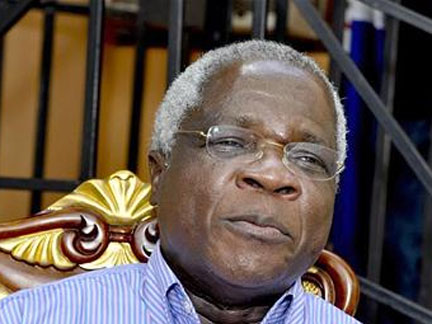Mozambique talks: Renamo makes U-turn on demands

The talks between the Mozambican government and the opposition Renamo showed a sudden turn in the last week, with the former rebel movement first demanding senior posts in the armed forces and police as a precondition for disarmament, only to express its interest in handing over weapons after two days.The head of the Renamo delegation to the dialogue, Saimone Macuiana, last Monday voiced his party’s demand for the principle of equity and parity in the armed and security forces, which was described by the head of the government delegation Jose Pacheco as “an aberration,” leading the talks to a standstill.
It seemed that all efforts to re-establish peace in Mozambique had vanished. It is the second time the Frelimo government and Renamo are negotiating a ceasefire. The government prefers to call it an end to “hostilities” because the real ceasefire agreement was signed in Italy in 1992, to end a 16-year civil war between the two sides.
Renamo, by presenting the new demands, probably tried to replicate the success it had when negotiating the electoral package, but it encountered fierce criticism from the government since the demand was not on the agenda for the dialogue proposed by Renamo a year ago.
Pacheco, also the agriculture minister, described the Renamo demands as “an aberration”.
Such demands, he added, demonstrated Renamo’s desire “to continue killing and to maintain disorder and public insecurity”. “Renamo has gone as far as to say that the commander must be from Renamo, the chief of the general staff must be from Renamo,” said Pacheco.
President Armando Guebuza said the demands were “a provocation typical of Renamo,” and that this could be a way for to declare “that it does not want peace”.
Two days later, Renamo changed its position, agreeing to hand over its weapons and reintegrate its armed men into the Mozambican army and security forces.
But according to the deputy head of the government delegation, transport minister Gabriel Muthisse, Renamo still refuses to demilitarise and become a normal political party.
“We have learned from history that there have been cases in which rebels join the armed forces and hand over their weapons, but this does not necessarily mean that those parties or rebel movements cease to have a militant component,” said Muthisse.
Indeed, Mozambique was one of those cases.
In 1994, volunteers from Renamo were integrated into the new, unified Armed Forces for the Defence of Mozambique after the peace agreement.
The two sides will this week try to finish the unfinished businesses, like the terms of reference for participation of international observers in monitoring a cessation of hostilities.
The next few days will be decisive, which will probably open a way for Renamo leader Afonso Dhlakama to register for the elections.— Xinhua.









Comments